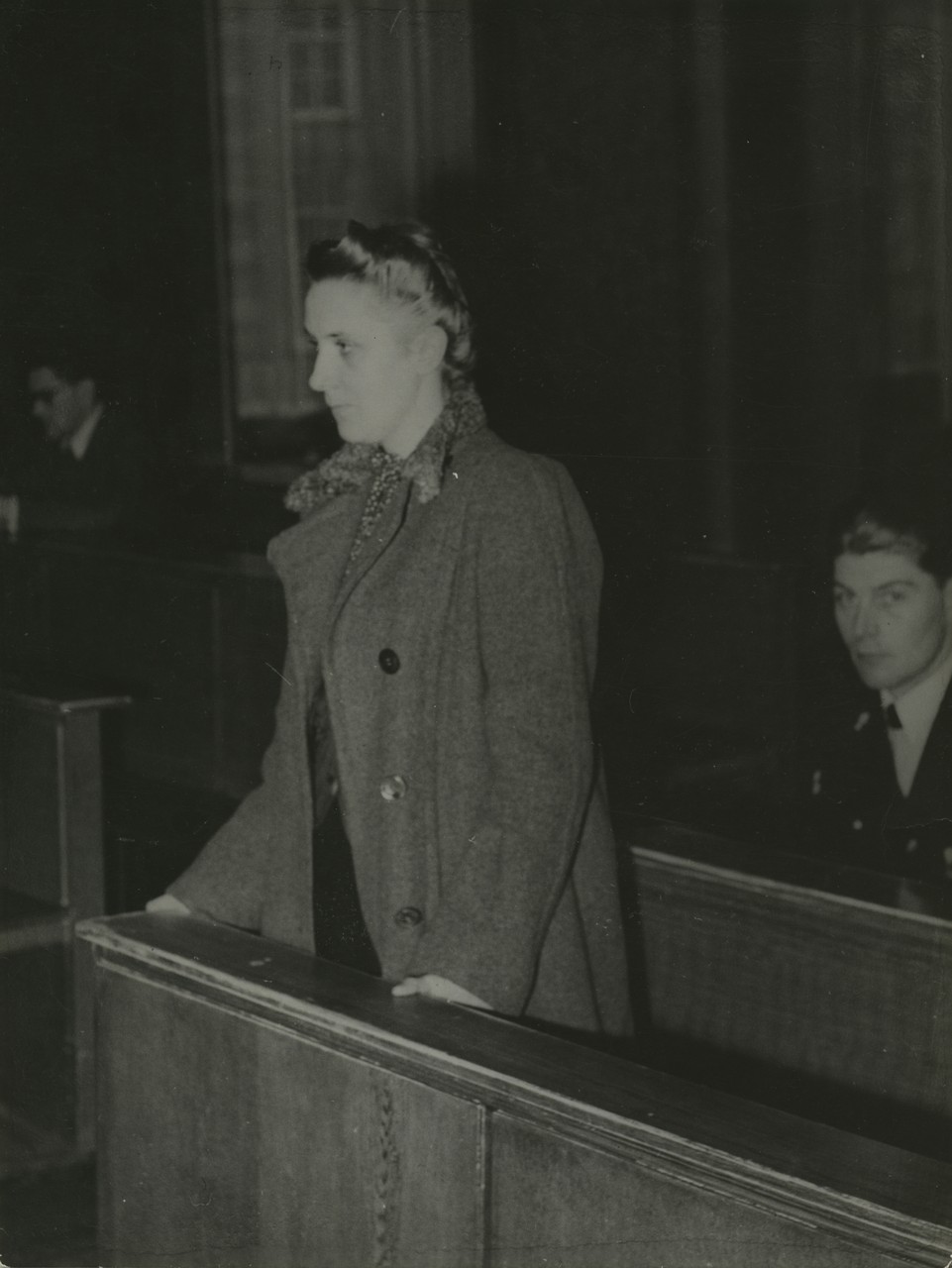Camp Vught’s 21 Dutch female guards were citizens employed by the SS. Most of them came from the province of North Brabant. They were often young women, with the youngest being just sixteen years old. Just like Suze Arts, these Dutch women had all kinds of reasons for taking up the job of camp guard. Some did it for the money, others for love — a number of women were in or started up a relationship with a male guard — and others as a way of rebelling against their parents. Some were also ardent supporters of National Socialism. At the age of two, Arts lost her mother. Not long after her death, a stepmother came into her live with whom she had a troublesome relationship. Arts went to several boarding schools as a child, including one in Germany, where she met Franz Ettlinger. They stayed in touch, and it was Ettlinger who already worked as a guard at Camp Vught when he pointed out the job vacancy to Arts. At the time, Arts was living as a single mother in Amsterdam with her son Hans, a child from an affair with a married GP she had worked for as a nurse. During her time in Camp Vught, Arts got pregnant with Ettlinger’s daughter, even though he was married and had four children at home.
Arts was abhorred by the women at Camp Vught. She was described by several prisoners as sadistic, inhuman, brutal and tyrannical, primarily due to her involvement in the infamous ‘bunker tragedy’. For this she was fired and after the war sentenced to 15 years in prison. After her release, Arts found a job using a pseudonym working for the women's magazine Margriet as a coordinator of the letters and puzzle section. Her two children grew up in foster care. After the war she stated: “I had no interest in politics. I simply wanted to put food on the table. Looking back, I sometimes think that it was the humiliation I suffered when I was young that brought me to Vught. There, in my uniform, I mattered.”
